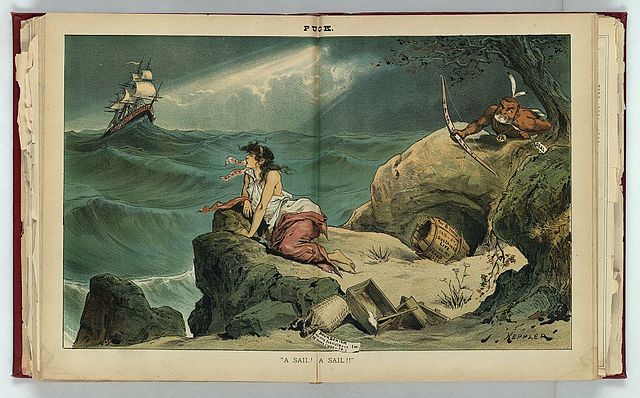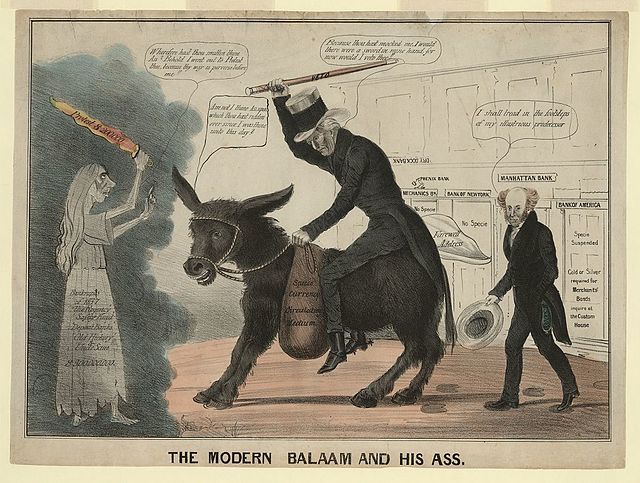Bourbon Democrat was a term used in the United States in the later 19th century and early 20th century (1872–1904) to refer to members of the Democratic Party who were ideologically aligned with fiscal conservatism or classical liberalism, especially those who supported presidential candidates Charles O'Conor in 1872, Samuel J. Tilden in 1876, President Grover Cleveland in 1884, 1888, and 1892 and Alton B. Parker in 1904.
1884 cartoon illustrating the decline of the "Democrat Bourbonism" (represented as an empty jug) by Joseph Keppler
West Virginia Governor Henry Mason Mathews (1834–1884) was the first of the Bourbon Democrats to reach the highest office of state politics
President Grover Cleveland (NY)
State Secretary Thomas F. Bayard (DE)
History of the Democratic Party (United States)
The Democratic Party is one of the two major political parties of the United States political system and the oldest active political party in the country as well as in the world. The Democratic party was founded in 1828. It is also the oldest active voter-based political party in the world. The party has changed significantly during its nearly two centuries of existence. Once known as the party of the "common man," the early Democratic Party stood for individual rights and state sovereignty, and opposed banks and high tariffs. In the first decades of its existence, from 1832 to the mid-1850s, under Presidents Andrew Jackson, Martin Van Buren, and James K. Polk, the Democrats usually bested the opposition Whig Party by narrow margins.
Andrew Jackson, founder of the Democratic Party and the first president it elected.
An 1837 cartoon depicted Jackson leading a donkey which refused to follow, portraying that Democrats would not be led by the previous president
Martin Van Buren
August Belmont: DNC Chair for 12 years during and after the Civil war








